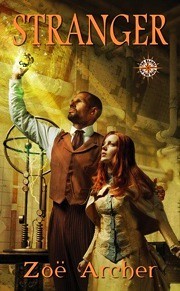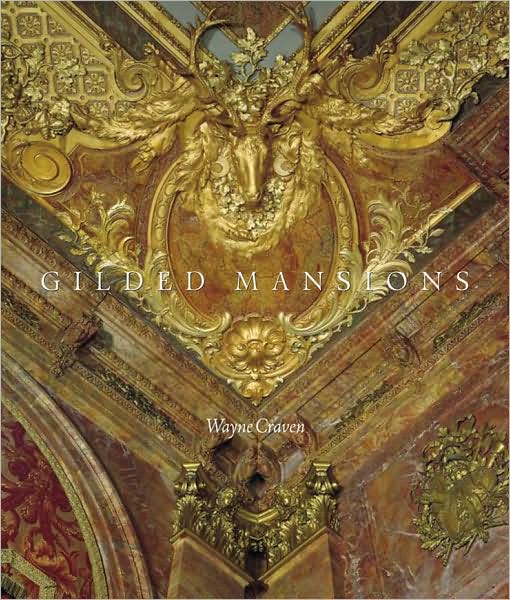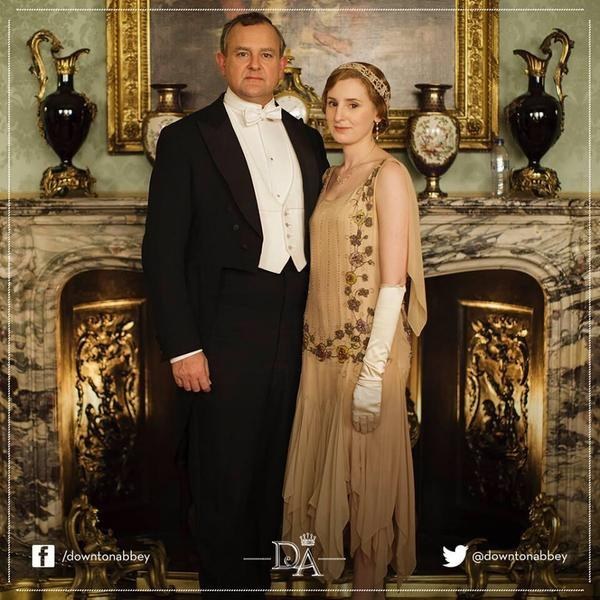 Zoë Archer was kind enough to send an ARC of her Steampunk Romance, Warrior, and needless to say, I loved it. With The Blades of the Rose, Archer takes the best bits of romance, action, adventure, history, and science fiction and turns them on its head. I enjoyed Warrior so much, I had to know more about the series and Zoë took time from her no doubt busy schedule to answer a few of my questions.
Zoë Archer was kind enough to send an ARC of her Steampunk Romance, Warrior, and needless to say, I loved it. With The Blades of the Rose, Archer takes the best bits of romance, action, adventure, history, and science fiction and turns them on its head. I enjoyed Warrior so much, I had to know more about the series and Zoë took time from her no doubt busy schedule to answer a few of my questions.
 Who are The Blades of the Rose, and what is the series about?
Who are The Blades of the Rose, and what is the series about?
Unbeknownst to almost everyone, magic truly does exist, and it is concentrated in physical objects known as Sources. These Sources are found all over the world, usually hidden for the protection both of the magic itself and humanity. Groups of men seek out Sources in order to enslave their magic and use their power in a quest for global domination. Enter the Blades of the Rose, a ragtag band of men and women who find and protect the Sources from those that would exploit their magic.
The Blades face a number of different foes, but their biggest, most dangerous enemy are the Heirs of Albion. The Heirs seek to make the entire world part of the British Empire, and they’ll stop at nothing to satisfy their greed for power. The series follows different Blades as they fight the Heirs across different continents, and a looming danger that threatens not only magic, but every man, woman, and child around the globe.
One thing I loved about Warrior was the technology used by Thalia (as created by Catullus). What inspired these steampunky gadgets? Are they rooted in any historical technologies?
Readers are going to see a lot more of Catullus and his diabolical inventions throughout the series! He even gets his own story (and heroine) in STRANGER. I saw Catullus, and his family, as “Q” in the James Bond films: creating gadgets and devices for the Blades operatives to take out into the field. Part of the Blades’ credo is that they are not permitted to use magic that isn’t theirs by right or gift (unlike the Heirs, who steal and use everybody’s magic), so they need a little help against their better-armed, more ruthless enemy. When it came time to conceptualize these devices, I would turn to my resident mad scientist, aka my husband. He’s not a scientist, but a fellow writer, albeit one with a considerable amount of scientific knowledge. He and I would think about what kind of technology would be available in the 1870s, and how it could be implemented in cool, unusual ways. Sometimes, an idea for a gadget would come first, and we’d think about what kind of scenario could make use of it, and other times, I’d present a dilemma or set piece, and we’d figure out what needed to be done and how to do it. It was a challenge, but a lot of fun!
 The Blades are a multi-cultural group. Did you uncover any exciting facts about people of color during the Victorian era?
The Blades are a multi-cultural group. Did you uncover any exciting facts about people of color during the Victorian era?
It was so wonderful to explore this surprisingly overlooked aspect of the Victorian age. For a long, long time, I had wanted to open up the possibilities of romance, and include diversity in an era that really was diverse, but often not represented as such. My research into the Canadian policy toward indigenous peoples revealed that, unlike the contentious relationship between the U.S. Cavalry and American Indians down in the States, Canadian Indians actually welcomed and appreciated the presence of the Northwest Mounted Police. The NMP helped control the dangerous traffic of illegal alcohol and firearms, making the region much safer.
When it came time to research the history of black people in Britain (Catullus is a black Briton), I learned tons, not just about the slave trade and England’s profit from it, but also the surprising lack of institutionalized racism in Britain. Unlike the United States, interracial marriages were not entirely uncommon, nor were they ever illegal. England has a much more established tradition of marriages between whites and blacks, and, while it wasn’t exactly celebrated, it was not the social taboo that it was (and, in some ways, continues to be) in the United States. I’m not saying that Britain was a paradise of equal opportunity, but the contrast between that country and the U.S. was pretty surprising. In one of the Blades books, Catullus comes to post-Civil War America, and he’s shocked by the treatment he receives.
But this is just one facet of the story. Above all, the Blades series is about fun, adventure and some pretty hot love scenes. *wink*
What was the most difficult thing about writing these four books back-to-back? Did you find one or more books crucial to your research?
Fortunately, I only had to write three books back-to-back, since WARRIOR was finished by the time Kensington decided to buy the series. However, that did mean I had to write three books, all of them over 100,000 words, in a year! It was a lot of work, but I really did enjoy not just the writing, but the pace. I actually came in early on almost all my deadlines. As to finding one book in particular that was helpful in my research, I couldn’t name just one. Between my own substantial research book collection, the nearby UCLA library, and the internet, I was able to find what I needed from many different sources. But the truth is that, at heart, I love doing research and I love integrating that research in a way that isn’t didactic or an info dump. I think I did a pretty good job with the Blades books. No one is ever bored when they read these stories!
What do you feel is the role of steampunk regarding the realities of the Victorian era? Is it strictly to re-imagine the setting, or is it a critique of the period?
Steampunk is a fluid term as well as a fluid ideology that varies from author to author and reader to reader. I think it can serve both as a re-imagination of a setting as well as a critique. It is a way of examining our own era’s reliance and implementation of technology, and what it signifies for humanity, yet through the lens of either the past or an alternate reality. This kind of distance allows and facilitates critique. We can experience, too, the wonderment of discovery and possibility, but also think about what it is we demand of technology and the costs it has upon our happiness. As far as Catullus and his family are concerned, they make sure that their inventions are used positively, to help in the fight to keep magic, and humanity, free. Too, I set up the tension between technology and magic–since, in the world of the Blades, magic arises from the power of human imagination and dreams. Sometimes technology is the antithesis of imagination, even if it originates as an idea in someone’s head.
My hope is that readers’ imaginations will be sparked by the Blades of the Rose series, since it combines adventure, magic, exotic locations, action and delicious romance all in one exciting package.
EXCERPT:
Thalia and her father managed to remember their manners enough to offer Captain Huntley a seat and some English tea. She handed the captain a cup of the steaming beverage, which he took with large, work-rough hands. Their fingers brushed against each other. The sensation of his touch ran through her like wild horses. He breathed in quickly as her skin went sensitive and alive, feeling everything at once, but mostly him.
They stared at each other, manners forgotten. A blaze there, in his golden eyes, and an answering flare within her. Hot and sudden, like wildfire on the steppe after a dry season. He broke the contact first, pretending to study his cup as he took a sip of tea. Thalia tried, but failed, not to watch the shape of his mouth on the painted rim of the cup. How might those lips feel against her skin? She knew better than this, she chided herself, and as soon as Captain Huntley had finished his tea, she would show him the door and never see the man again. Though he seemed to have other ideas.
“I can’t pretend to know what any of those messages mean,” he said to her father. He glanced down at her father’s braced and bandaged leg. “But it’s clear that you need some help. Let me give it.”
“I thank you, Captain,” Franklin answered, “but no. We can manage on our own.”
Batu had found a small folding camp chair, and now the captain sat in it, but the chair did a poor job of containing him. He kept stretching out his legs and trying to fit himself into the seat that had, in the past, comfortably held Thalia, and nearly every other man who had come into their ger, but it was like trying to put a waistcoat on a tiger.
He looked at her father, then at Thalia, sitting nearby. She struggled to ignore the leap her stomach gave to be under his golden scrutiny.
“I doubt that,” the captain said bluntly. “You need me.”
Thalia ground her teeth together at his presumption. How like a military man to step in where he knew nothing and didn’t belong, and start issuing orders.
“Rest assured,” her father replied, “that we do not. You did your duty to Anthony Morris with honor, but now you have discharged that duty and can return home to England.”
That prospect did not seem to elate Captain Huntley. He worked the clean square line of his jaw as he contemplated the fragile china in his hand. “Sir—” he began.
“Thank you, Captain,” Thalia said, cutting him off, and he didn’t care for that one bit. A flare of anger gleamed in his eyes as he looked at her. “We do appreciate your offer of help, but this is personal business.”
“Personal enough to get a man killed?”
Thalia stood. She didn’t care if she was being rude, violating every principle of Mongol and English hospitality, but she had to get rid of the tenacious, irritating captain immediately. It had nothing to do with her reaction towards this man. It was purely a matter of protection. She walked to the door and held it open.
“Thank you,” she said again in a clipped, frosty voice. “Everything you have done has been extraordinary, but you can go no further in your task. My father and I are perfectly capable of managing the situation on our own.”
Her father kept his expression carefully neutral, providing neither assistance nor resistance.
After a moment, a wry smile curved in the corner of Captain Huntley’s mouth and he set his teacup down on the table with a sharp clack. He unfolded himself from the chair with surprising grace, then picked up his pack and shouldered it. With a slight clicking of his heels, he bowed to her father with a murmured, “Sir.” Her father, not much inclined to ceremony, took the captain’s hand and shook it.
“You stood up for Tony, which I wish I could have done,” Franklin said. “And your honor does you credit. Godspeed to you, Captain, and good luck.”
The captain offered no similar reply, but shook Franklin’s hand gravely. He then strode to the door, stopping in front of Thalia. She kept her gaze trained on the space just over his shoulder, trying to avoid that sharp jolt of sensation that came from looking into his eyes. “I’ve sailed half way ‘round the world,” he said quietly, his voice like whiskey, rough and warm, “including chugging through the Bay of Bengal on the leakiest, rustiest and least seaworthy freighter that ever insulted the ocean, which, after the luxuries of the first steamship, did little for my constitution. I’ve taken the most damnable journey through China, and most of my coin is now lining the pockets of every single government agent between here and Peking.”
“I am sorry about that,” Thalia said, and meant it. “We haven’t much money, ourselves, but surely we can spare some for your return.”
He looked coldly at her. “I don’t want sympathy and I don’t want your cash.”
“What do you want, then?”
“Tell me what Morris’ message means.”
She shook her head. “That is one thing I cannot give you, Captain. It would imperil not only you, but many others, as well.”
Though it clearly didn’t satisfy him, he pressed for no more. He gave Thalia a small bow, but there was an intangible something that was deeply ironic about the gesture. He stared at the ground for a moment, and Thalia followed his gaze to the tops of her muddy, heavy boots, which stuck out from the hem of the dress. Yes, she was a genuine elegant English rose. Thalia drew herself up to her full height and resisted the urge to twitch the gown’s fabric over the boots. Their gazes met and held. Dangerous, she thought. He might not be a Blade, but he was a man, and not any man, but one who could inflict serious damage on her, if she let him. She could see that plainly. h, God, she was glad he was leaving. She would have had to be on her guard constantly, had he stayed.
“Miss Burgess,” he rumbled.
“Captain,” she said coolly.
With a nod, he placed his hat upon his head and walked out into the dusk. He never hesitated, instead moving straight and steady through the still-crowded lanes. Without any urging on his part, the throngs parted to let him pass. Rather than watch him disappear into the mass, which she felt possessed to do, Thalia shut the door, then turned and looked at her father. The confines of the tent, or, more accurately, the confines of her own body, still vibrated with Captain Huntley’s presence. He lingered there, the sun’s afterimage burned into her.
Curious to read more? Warrior, book one in the Blades of the Rose, lands in bookstores September 7th. Scoundrel follows in October, with Rebel in November, and Stranger rounding out the series in December. Read excerpts, watch a book trailer, and more at Zoe’s website.
Leave a comment to be entered to win a copy of Warrior!





Steampunk Romance ? Oh yeah baby, I wanna read !!!
I can’t wait to read this series! I’ve been looking forward to it since I read “The Undying Heart” in “Half Past Dead”.
You had me at “Steampunk”.
As for the “Romance” part, well, this man’s man doesn’t read romance novels (as far as you know), but I believe I’d be willing to make an exception here. If I win the ARC, I will read it and review it promptly on Amazon and add it to the list of other romance novels I am alleged to have read but am not yet prepared to admit.
I’ve been wanting to read this series since I saw SmartBitches tweet quotes from Scoundrel. Then I read the blurbs and I was all the more fascinated.
Is it true that the Kindle edition is released on the 1st, and the print edition on the 7th?
I’m from Belgium btw, so I understand if that makes me not a good party for the win.
Best of luck Zoe for a series I know will be more than awesome. You rock girl!
A cover reminiscent of Indiana Jones with a steampunk story! Um, I’m so there. 😀
Also, I love love love the extensive UCLA library. * _________ *
Seriously considering camping out at the bookstores until these hit the shelves. Looks like we’re in for some roaring good adventure and interesting characters. Catallus sounds fascinating.
I enjoyed the post and loved the excerpt of Warrior.
I’ve been excited about this series since I first heard about it. The mix of historical, steampunk, adventure and romance is fabulous and I’m dying to read The Blades of the Rose series.